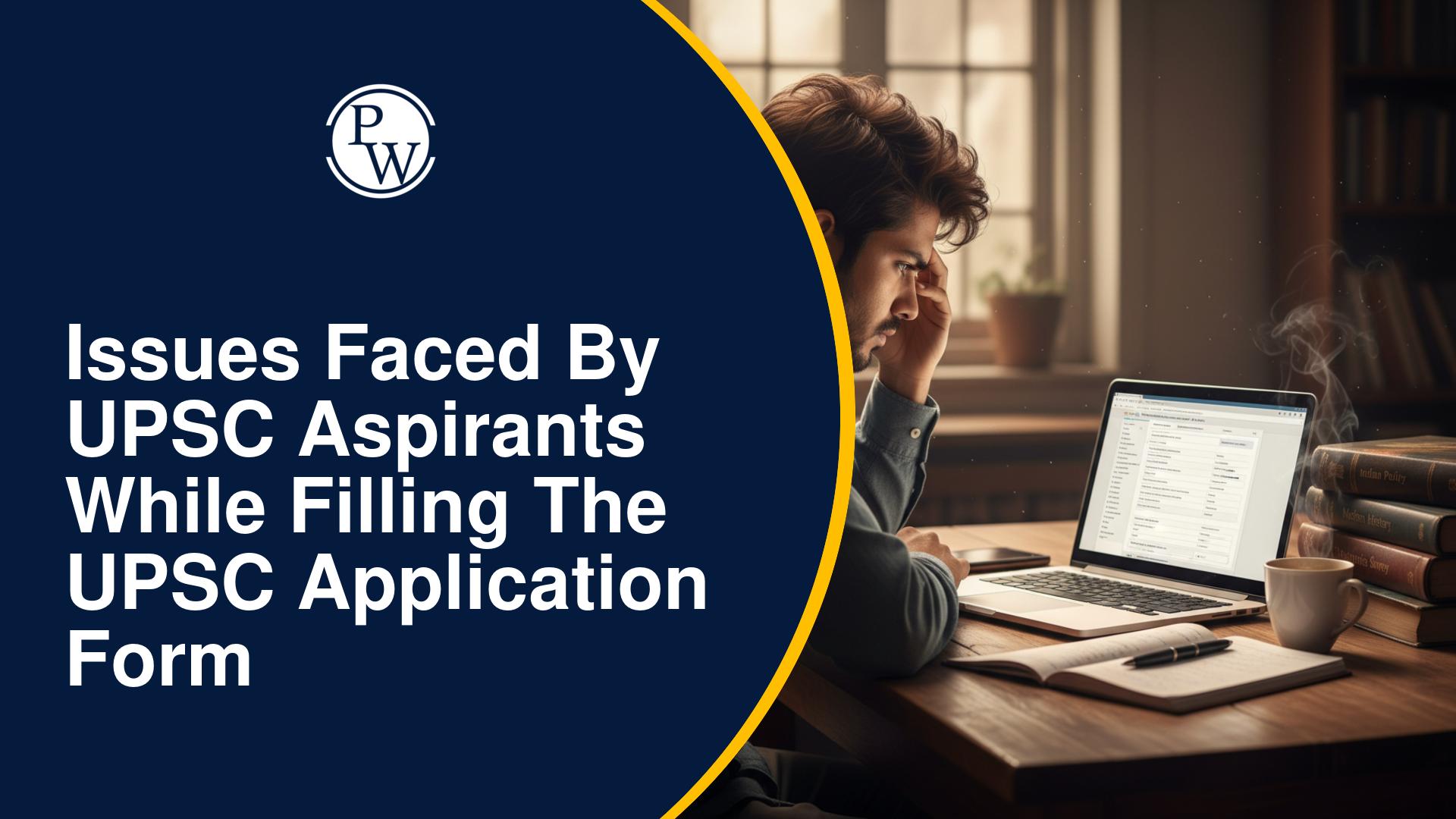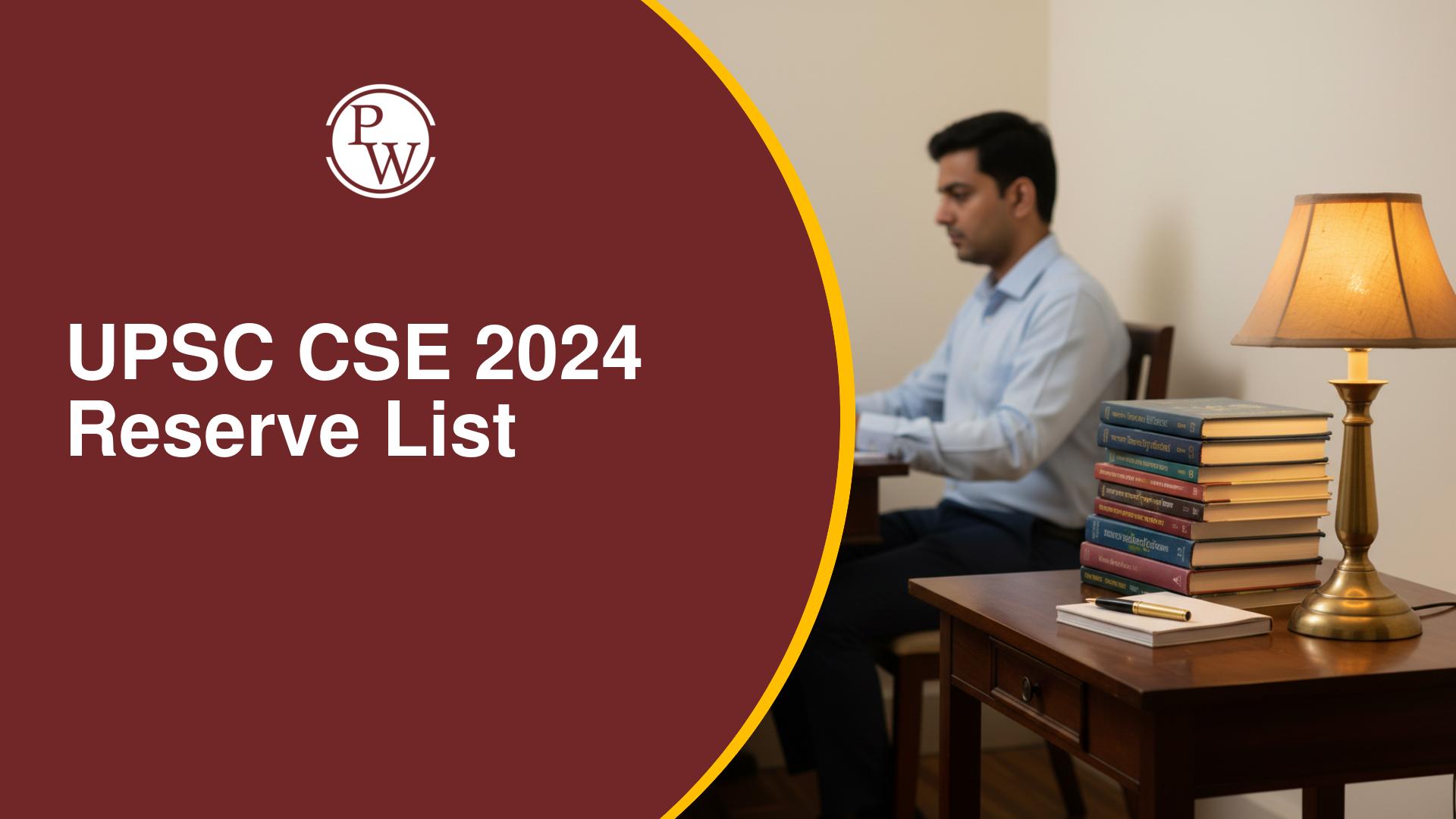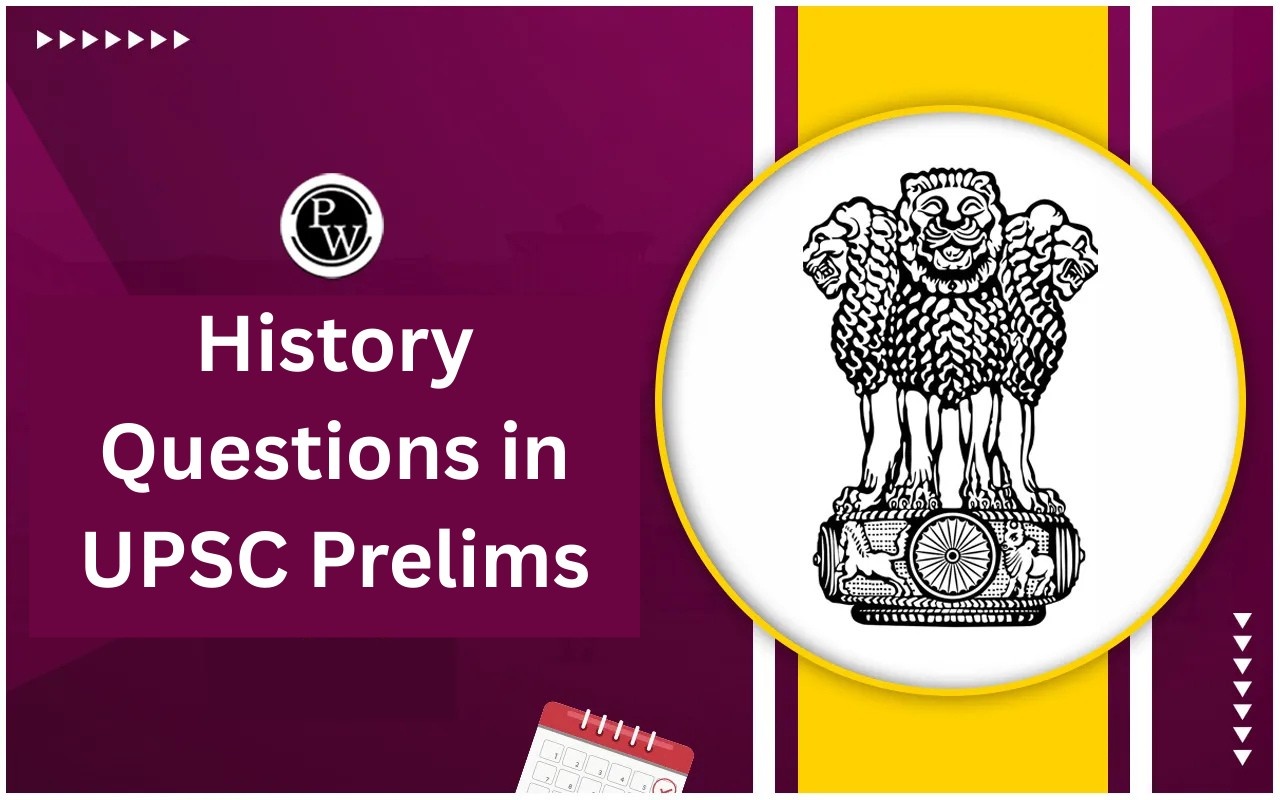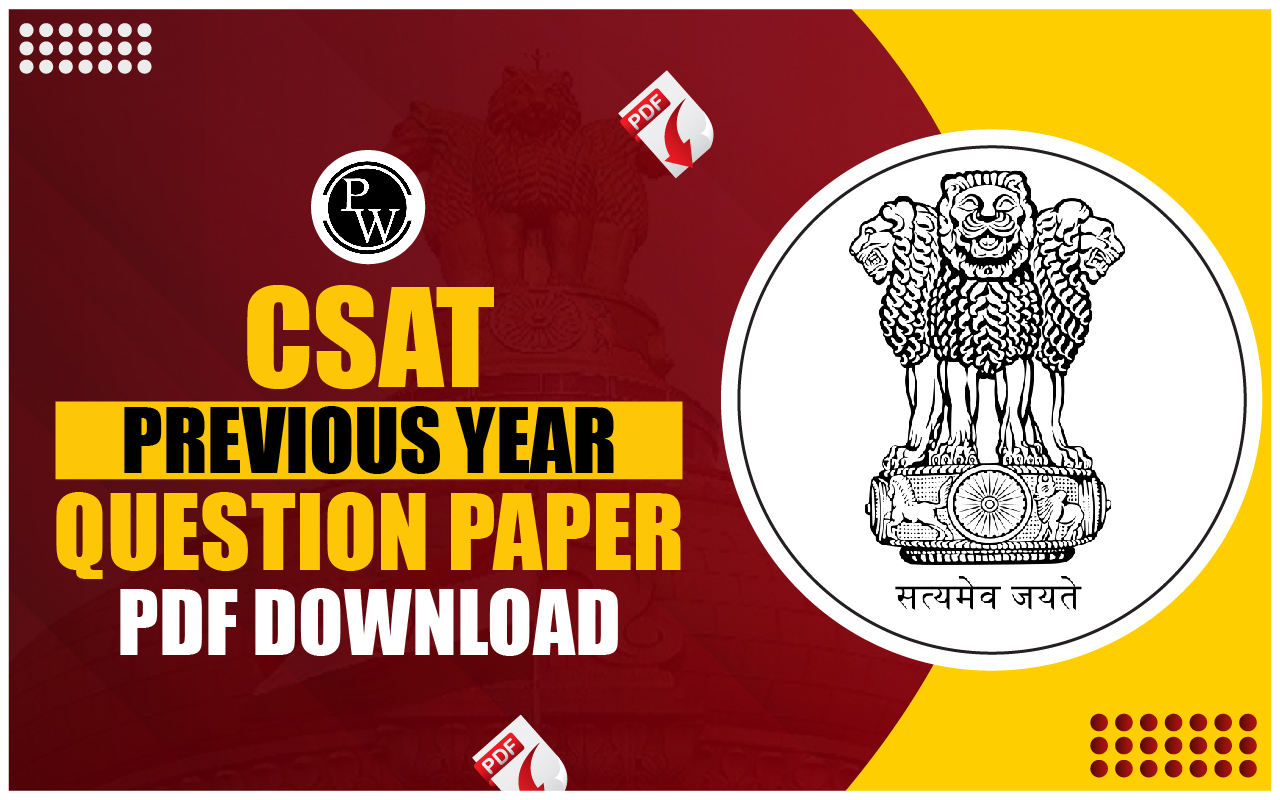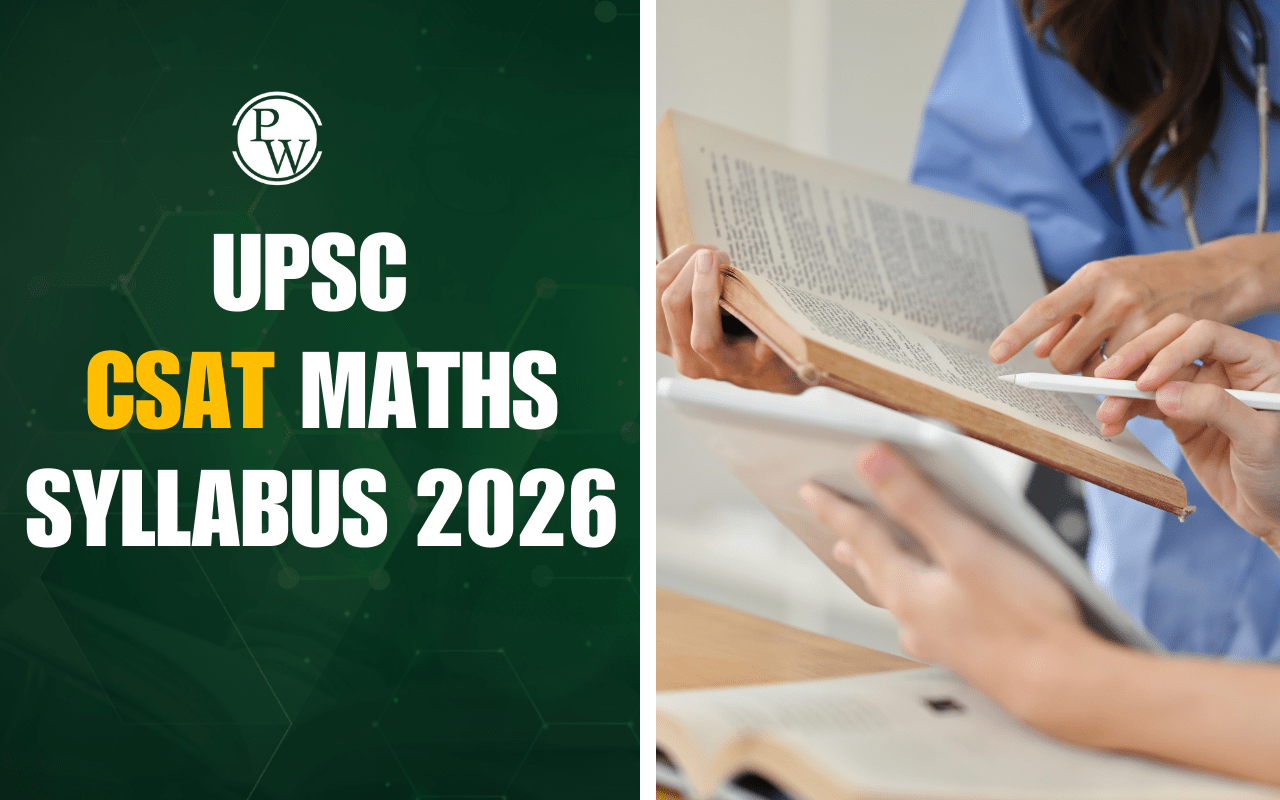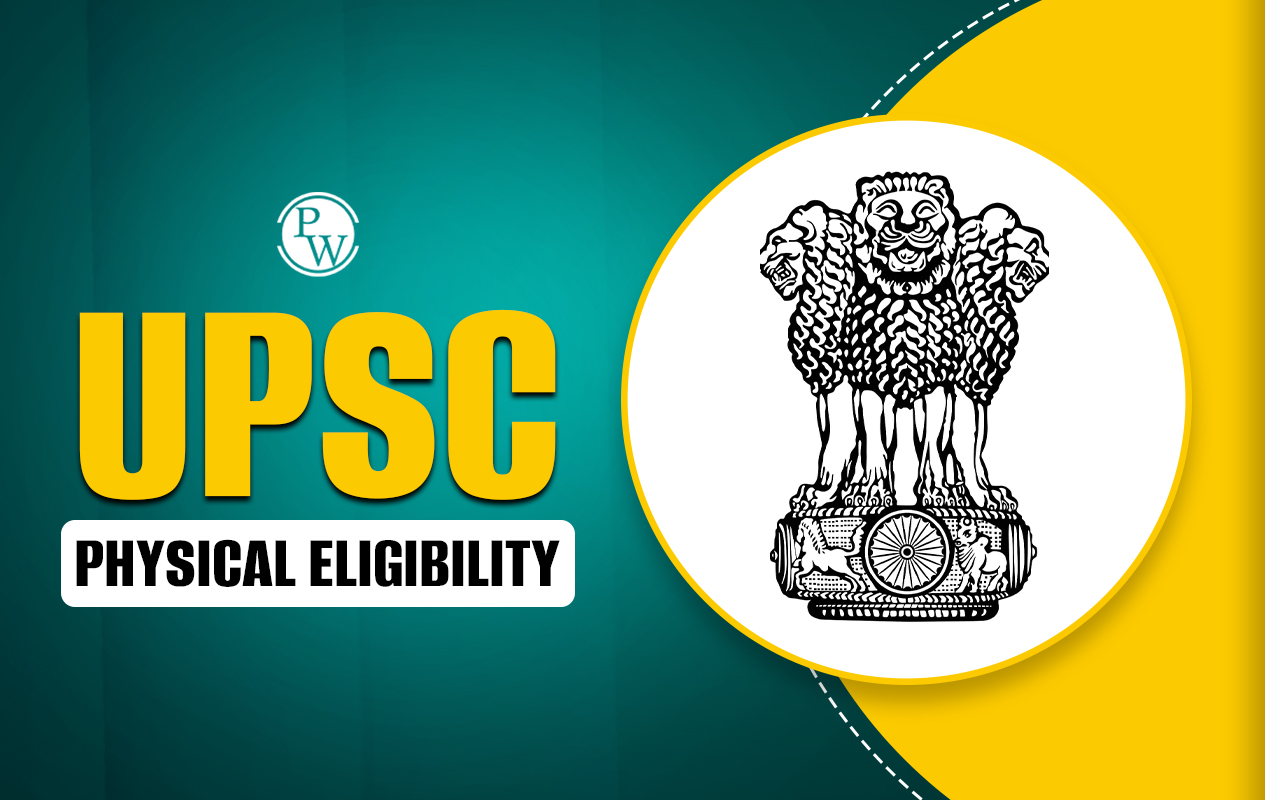
UPSC Statistics Optional Syllabus 2025: Among the 48 optional subjects offered in the UPSC Civil Services Examination, Statistics is among the least chosen. This is primarily due to its technical and specialized nature, which is closely aligned with mathematics, making the syllabus appear complex and intimidating to many aspirants.
However, the statistics option can be a strategic choice for candidates with a strong foundation in probability, sampling, and data analysis. It offers the potential for high scores with relatively low competition. Explore the detailed syllabus, benefits, previous years' questions (PYQs), and more about the Statistics Optional subject.
UPSC Statistics Optional Syllabus 2025
The Statistics Optional Syllabus is divided equally into two papers. Paper I concentrates on topics like probability, statistical inference, analysis of covariance, and sampling techniques. Paper II revolves around statistical computing, industrial statistics, and quantitative economics. Candidates can refer to the table below for a complete topic-wise syllabus.UPSC Statistics Optional Syllabus 2025 For Paper 1
The paper 1 statistics optional syllabus mostly consists of theoretical and fundamental concepts of statistics. Four main topics are distributed among various subtopics in Statistics Optional Paper 1. Here is the syllabus for the first paper of statistics optional subject:| Topic | Subtopics |
| 1. Probability |
|
| 2. Statistical Inference |
|
| 3. Linear Inference and Multivariate Analysis |
|
| 4. Sampling Theory and Design of Experiments |
|
UPSC Statistics Optional Syllabus 2025 For Paper 2
The Statistics optional subjects in Paper 2 focus on more dynamic topics such as official statistics, demography, and psychometry. Candidates need to master each and every topic of the Paper 2 Statistics Optional Syllabus to score decent marks. Here is the syllabus for the second paper:| Topic | Subtopics |
| 1. Industrial Statistics |
|
| 2. Optimization Techniques |
|
| 3. Quantitative Economics and Official Statistics |
|
| 4. Demography and Psychometry |
|
UPSC Statistics Optional Subject Pros and Cons
Before selecting any optional subject, candidates must understand the advantages and disadvantages. This applies to the statistics optional as well. The pros and cons of choosing statistics in the UPSC CSE mains are provided below:Pros of UPSC Statistics Optional Subject
The advantages the Statistics Optional subject offers to candidates are:- Competition is less and scoring opportunities are good.
- Less subjectivity makes it easier to score high marks after sufficient revision and practice.
- A static syllabus that is easy to cover if you have prior knowledge.
- Suitable for candidates who have studied statistics during graduation or post-graduation.
- Best for candidates targeting the UPSC Indian Statistical Service (ISS) exam.
Cons of UPSC Statistics Optional Subject
Candidates may refrain from taking this optional subject in the UPSC mains due to the following reasons:- Scarcity of study material in the market for the statistics optional subject.
- Quality statistics optional test series is not easily available.
- No overlap with other general studies papers, making it hard for students to balance all subjects of UPSC mains.
- It requires significant self-study and writing practice.
UPSC Statistics Optional Previous Year’s Paper
To understand the nature of the questions asked in the Statistics Optional Paper, it is important to have a look at the previous year's question papers. The Optional UPSC PYQs are good sources of analysis requirements for this subject and practice answer writing for UPSC Mains. Here is the direct link to download the year-wise Statistics Optional UPSC question paper:| Statistics Optional Previous Year Question Papers | ||
| Year | Paper | Download Link |
| 2020 | Statistics Paper I | Click Here |
| Statistics Paper II | Click Here | |
| 2021 | Statistics Paper I | Click Here |
| Statistics Paper II | Click Here | |
| 2022 | Statistics Paper I | Click Here |
| Statistics Paper II | Click Here | |
| 2023 | Statistics Paper I | Click Here |
| Statistics Paper II | Click Here | |
| 2024 | Statistics Paper I | Click Here |
|
Statistics Paper II |
Click Here | |
UPSC Statistics Optional Books
Candidates need to ensure that they have quality study material to cover all topics of the optional statistics syllabus. Given the extensive syllabus of Optional Statistics, referring to standard books is highly recommended. Here is a list of statistics optional books to prepare for the UPSC mains exam:| UPSC Statistics Optional Books | |
| Book Name | Author |
| An Introduction to Probability Theory & Mathematical Statistics | V K Rohtagi |
| Introductory Probability and Statistical Applications | Paul Meyer |
| An Outline of Statistical Theory (2 Vol.) | A M Goon, M K Gupta, and B. Dass Gupta |
| Fundamentals of Applied Statistics | S C Gupta and V K Kapoor |
| Fundamentals of Mathematical Statistics | A C Gupta and V K Kapoor |
| Fundamentals of Statistics (2 Vol.) | A M Goon, M K Gupta, and B Dass Gupta |
| Sampling Techniques | William G. Cochran |
| Sampling Theory of Surveys with Applications | B. V Sukhatme & B V Sukhatme |
How to Prepare for UPSC Statistics Optional Subject?
A good preparation strategy and quality reference material combined with dedication can do wonders in the statistics optional. Scoring 250+ is possible if candidates prepare systematically for UPSC mains with this optional. Here are some tips to prepare for the statistics optional in UPSC:- Syllabus First: Have a look at the latest statistics optional paper syllabus and note down topics to study.
- PYQ Analysis: Candidates should analyse the previous year's papers provided above and note down recurring topics.
- Fundamentals: Start with fundamental concepts and study high-yield topics carefully.
- Mathematics: Do not shy away from revising related basic mathematics topics.
- Speed and Accuracy: Candidates should practice maximum questions in an exam-like environment, as this paper requires balancing speed and accuracy, which could be learned by joining the UPSC mains test series.
- Avoid Generic Answers: Be specific in your answers as it is a technical subject with fixed concepts. Try using tables, charts, and graphs in your answers.
- Take Help : Seek help from wherever possible to enhance performance in this optional. Consider joining the optional UPSC coaching or mentorship programme.
UPSC Statistics Optional Subject Success Rate
While few candidates select the ‘UPSC Statistics Optional’ in the UPSC civil services mains exam, the success rate is average. Candidates who have made up their minds to take this optional can refer to below available data for Statistics optional UPSC success rate:| Year | Success Rate in UPSC | Total Appeared Candidates | Selected Candidates |
| 2015 | 20 | 5 | 1 |
| 2014 | 16.7 | 6 | 1 |
| 2013 | 16.7 | 6 | 1 |
| 2012 | 6.3 | 16 | 1 |
| 2011 | 5.3 | 19 | 1 |
UPSC Statistics Syllabus FAQs
Is Statistics a good optional subject for economics graduates?
Ans: It is up to students, candidates with an economics degree may opt for this subject due to some overlapping topics.
Is Statistics a scoring optional subject in UPSC?
Yes, Statistics is a scoring optional subject in UPSC if candidates have prepared well.
What is the success rate of Statistics optional in UPSC?
The success rate of Statistics optional in UPSC has been the average till 2015.
Which is better optional for UPSC statistics or mathematics?
It depends on the interest of candidates as both statistics and mathematics are good subjects.
What is the major disadvantage of choosing the statistical option?
The major disadvantage of choosing the statistical optional subject is the lack of study material and main test series.
Talk to a counsellorHave doubts? Our support team will be happy to assist you!

Check out these Related Articles
Free Learning Resources
PW Books
Notes (Class 10-12)
PW Study Materials
Notes (Class 6-9)
Ncert Solutions
Govt Exams
Class 6th to 12th Online Courses
Govt Job Exams Courses
UPSC Coaching
Defence Exam Coaching
Gate Exam Coaching
Other Exams
Know about Physics Wallah
Physics Wallah is an Indian edtech platform that provides accessible & comprehensive learning experiences to students from Class 6th to postgraduate level. We also provide extensive NCERT solutions, sample paper, NEET, JEE Mains, BITSAT previous year papers & more such resources to students. Physics Wallah also caters to over 3.5 million registered students and over 78 lakh+ Youtube subscribers with 4.8 rating on its app.
We Stand Out because
We provide students with intensive courses with India’s qualified & experienced faculties & mentors. PW strives to make the learning experience comprehensive and accessible for students of all sections of society. We believe in empowering every single student who couldn't dream of a good career in engineering and medical field earlier.
Our Key Focus Areas
Physics Wallah's main focus is to make the learning experience as economical as possible for all students. With our affordable courses like Lakshya, Udaan and Arjuna and many others, we have been able to provide a platform for lakhs of aspirants. From providing Chemistry, Maths, Physics formula to giving e-books of eminent authors like RD Sharma, RS Aggarwal and Lakhmir Singh, PW focuses on every single student's need for preparation.
What Makes Us Different
Physics Wallah strives to develop a comprehensive pedagogical structure for students, where they get a state-of-the-art learning experience with study material and resources. Apart from catering students preparing for JEE Mains and NEET, PW also provides study material for each state board like Uttar Pradesh, Bihar, and others
Copyright © 2026 Physicswallah Limited All rights reserved.
